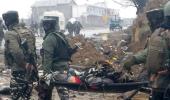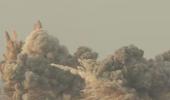'A resurgent Jaish could be a reflection of the Pakistani security establishment's view that with the region moving ever closer to a post-US Afghanistan, it is time to redirect attention to Kashmir.'
"I've been arguing for more than four years -- ever since the foreign combat war ended in Afghanistan at the end of 2014 -- that Kashmir-focused militant groups that had been operating in Afghanistan will increasingly redirect their attention to Kashmir and India," Michael Kugelman -- one of the most astute observers of developments in South Asia -- tells Rediff.com's Nikhil Lakshman in the concluding segment of an e-mail interview.
- Part 1 of the interview: 'US does not want India, Pakistan to go to war'
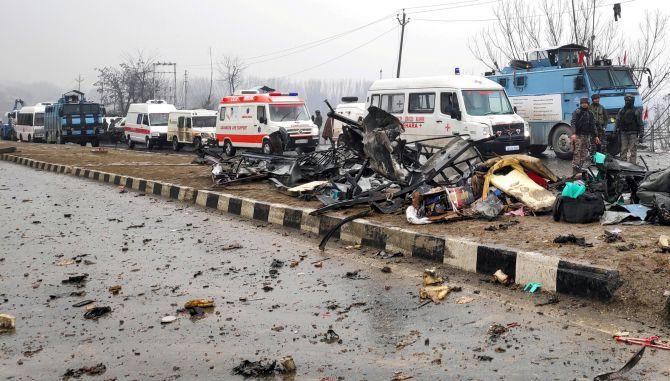
As a long standing observer of Pakistan, do you believe the Pulwama massacre has the ISI's fingerprints all over it?
It's hard to say. At this point, many details surrounding the attack still remain unclear -- we know JeM claimed the attack and we know it was carried out by a local militant, but that's about it.
There have been reports that (Jaish founder Masood) Azhar himself ordered the attack in order to retaliate for the killing of his nephew, and there have been reports that ISI personnel were present in the planning meetings. I'd rather not speculate.
The bottom line is that an organisation with close ties to the ISI claimed responsibility. The operation may have been perpetrated by a local terrorist, drawn on local weaponry and other resources, and been motivated by local grievances.
But at the end of the day, the group's longstanding relationship with Pakistan will invariably raise concerns about some level of complicity from across the border.
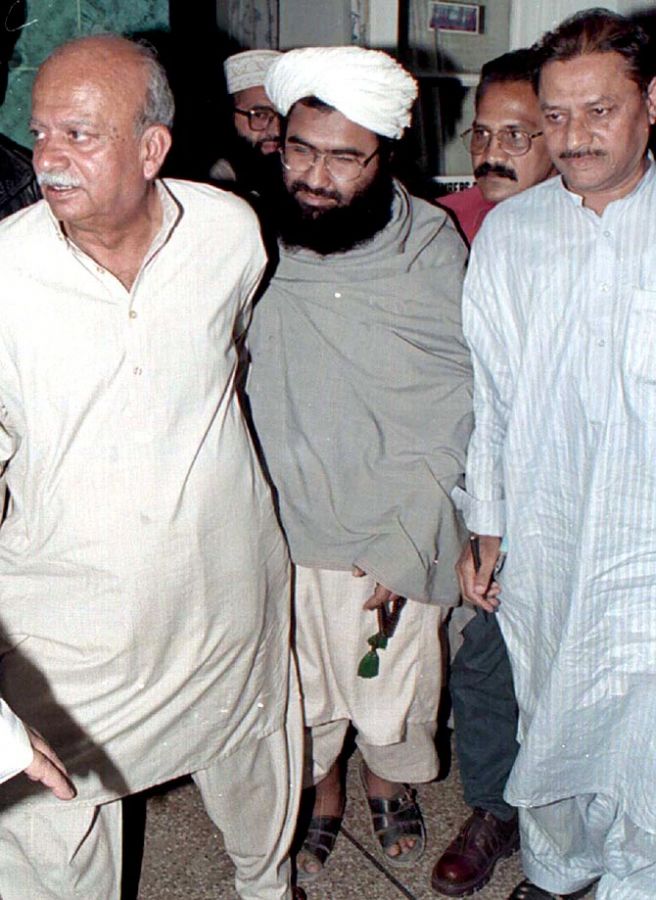
He had been freed from an Indian prison along with two other terrorists in exchange for the passengers and crew of the hijacked Indian Airlines flight IC-814. Photograph: Reuters
'Jaish has been allowed to resurge through supported terror actions in J&K in a deliberate tactic by Pakistan, if only to reduce the international pressure on the LeT after 26/11,' Rana Banerji, who headed the Pakistan desk at the Research and Analysis Wing, India's external intelligence agency, pointed out on Rediff on Saturday. Do you agree?
There certainly is something to be said about the resurgence of JeM.
Azhar largely disappeared from public view after his organisation was accused of trying to assassinate Pervez Musharraf in December 2003, and not until a decade later did he resurface -- through an audio recording of his voice played at a rally in Pakistan-administered Kashmir in early 2014.
Ever since then he has made all manner of threats -- including, back in early 2014, a vow to assassinate Narendra (Damodardas) Modi if he became prime minister.
The question is why the resurgence, and why now. I doubt it is meant to take attention off LeT; on the contrary, a more active JeM will only intensify the international community's concerns about Pakistan-based, India-focused, terror, whether JeM or LeT.
JeM's resurgence can be read in a variety of ways.
First, it could be meant to capitalise on the latest generation of Kashmiri militants who are inspired by the heavy-handed tactics of Indian security forces -- an attractive recruitment target.
Second, it may be an effort to push back against attempts by other terror groups to exploit the situation in Kashmir. Both ISIS and al Qaeda have incorporated the region into their propaganda.
Asim Umar, the head of AQIS, al Qaeda's South Asia affiliate -- and himself an Indian -- has explicitly called on Indian Muslims to mobilise for jihad.
And third, a resurgent JeM could be a reflection of the Pakistani security establishment's view that with the region moving ever closer to a post-US Afghanistan, it is time to redirect attention to Kashmir and to provide a fillip to the militant proxies that can best help pursue Pakistan's interests there.
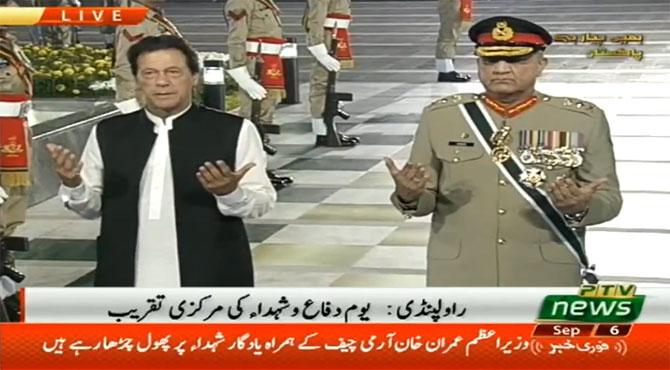
After General Bajwa took over as Pakistan army chief, there were murmurs that he was less of a hawk on India -- if that was possible at GHQ Rawalpindi! -- than his predecessor Raheel Sharif and that there was a possibility of some kind of detente on the LoC.
That clearly has not happened with the almost daily skirmishes and the body count on both sides. How would you explain this?
We often hear murmurs about Pakistani army chiefs supposedly taking a softer position toward India. There was much attention, for example, when (then Pakistan army chief) General (Ashfaq Parvez) Kayani's military began categorising domestic militancy as a greater threat than India.
And before him, there was (General Pervez) Musharraf's short-lived backchannel effort to launch talks with India. But ultimately, after many short-lived gestures of conciliation, Pakistan's military tends to revert to the norm, with India becomes enemy #1 once again.
I do think General Bajwa has given some attention to engaging with India -- the Kartarpur Corridor could not have been finalised without his assent -- and he, like other Pakistani military leaders, has seen the value of pursuing talks in order to dredge up the Kashmir issue.
But when it comes down to it, any Pakistani military leader will need to project India as a foe in order to justify the army's outsize role in politics and statecraft.
Would you say the Indian Army's pummeling of Pakistan positions in Punjab -- where the Pakistan army draws most of its recruits -- in retaliation for the beheading of Indian soldiers by Pakistani border action teams has compelled GHQ Rawalpindi to up the terrorism ante in Kashmir?
Quite possibly, but then again we still don't know the full story behind the Pulwama attack.
If it's true, as suggested by some Indian media reports, that the attack was organised by Masood Azhar in retaliation for India's killing of a relative of his, then this is a tragedy that has much more to do with a terror leader's personal vendetta than with a concerted strategy by the Pakistani security establishment.
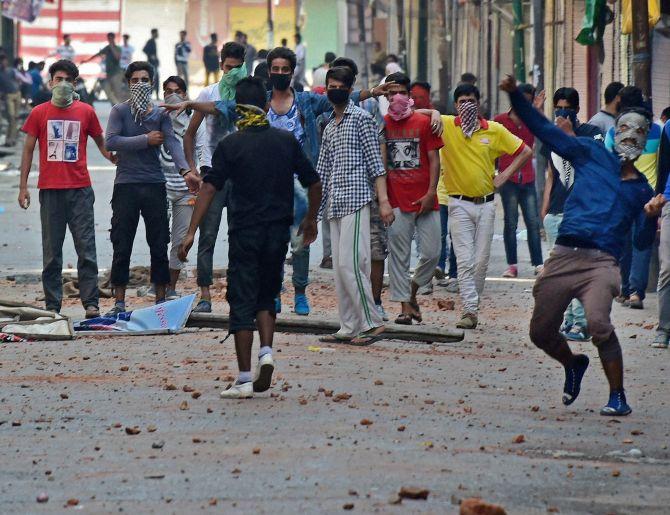
Did the ISI and the Pakistan army see in the youth upsurge in Kashmir after Burhan Wani's killing in July 2016 an opportunity to resurrect the insurgency in the valley the way it did in the early 1990s?
The killing of Wani certainly posed an opportunity for Pakistan, but the question is to what extent did Pakistan actually need to be involved in this resurrection.
The new generation of militants in Kashmir is driven by local grievances -- the killing of Wani and other repressive measures taken by Indian security forces -- and it doesn't need that much external enabling to get fired up.
That said, these young insurgents, while products of the local environment, are convenient to Pakistan because they can very adroitly help carry out Pakistani interests -- and therefore Pakistan would have good reason to provide them with support, from arms to ideological support.
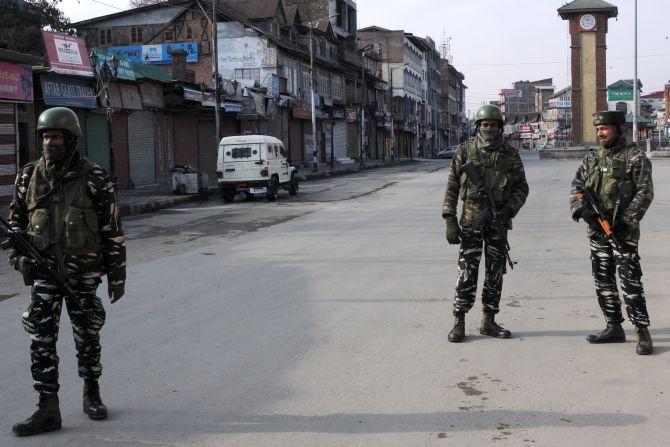
Has the Modi government's handling of Kashmir aggravated the problem, created a situation where younger Kashmiris are getting radicalised, where the calls for azaadi are being muted by louder Islamic, ISIS-like, slogans?
I don't think we should overstate the inroads made by ISIS and its ilk in Kashmir; while they have tried to deepen their footprint and influence, it is JeM and the other regional jihadist players that have made -- and will continue to make -- the biggest mark.
That said, for sure, Modi's government has taken a consistently tone deaf position on Kashmir that has simply poured more fuel on the fire of the insurgency.
It has vacillated between making misplaced pledges for more development -- for most Kashmiri rebels, the biggest problem isn't poverty, it's repression -- and cracking down heavily on local communities.
In effect, India has alternated between offering carrots that locals have no interest in accepting and wielding sticks that just make things worse.
This has created a fertile environment for radicalisation that local militant groups, international terror syndicates, and the Pakistani security establishment have been happy to exploit.
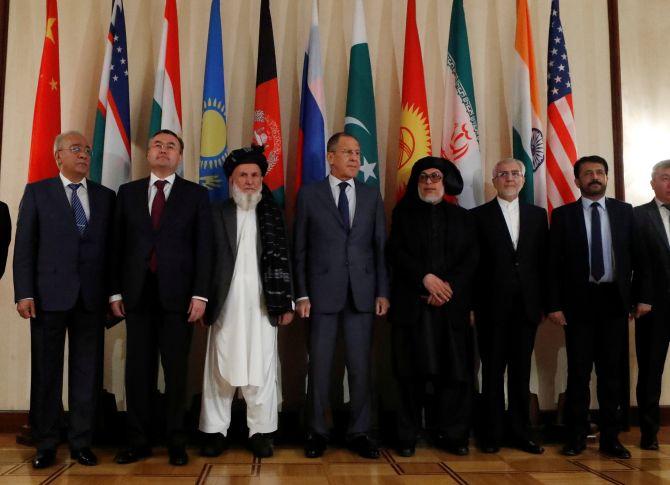
On Lavrov's left is Sher Mohammed Abas Stanekzai, the chief Taliban negotiator, who The New York Times revealed on February 16, 2019 was educated at 'India's most prestigious military schools'! Photograph: Sergei Karpukhin/Reuters
There is a belief that peace in Afghanistan will bring the barbarians to India's gates, encourage Islamic terrorists to foment trouble not only in Kashmir, but perhaps in the rest of India.
Do you see this as a possibility? What are the security challenges India must be prepared for in the months to come?
I've been arguing for more than four years -- ever since the foreign combat war ended in Afghanistan at the end of 2014 -- that traditionally Kashmir-focused militant groups that had been operating in Afghanistan against Afghan and NATO troops will increasingly redirect their attention to Kashmir and India broadly speaking.
The sobering reality is that the day the fighting stops in Afghanistan -- if that day ever comes -- Kashmir could become an increasingly volatile ground zero for India-focused Pakistani terror groups.
